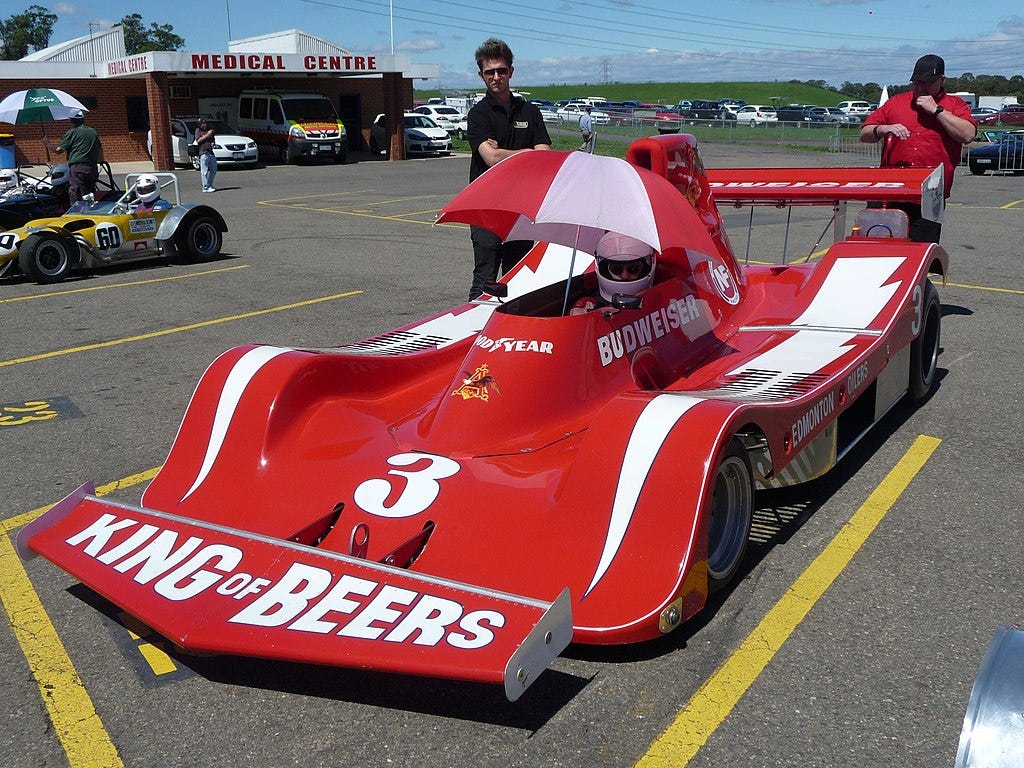
December, 1980. Hollywood’s most sought-after actor was acting like an idiot. Paul Newman, along with his friend & partner in crime, A.N. “Hotch” Hotchner, really were breaking the law, several laws in fact, having to do with health, safety & gift-giving, the latter imposing a duty of care on the benefactor. Hotch knew better: he was a lawyer. Though the duo said they were only trying to be social by making Newman’s personal-recipe salad dressing and giving it away as a Christmas present to friends & family, they weren’t being very socially responsible in how they were going about it. Sudden outbreaks of typhus and e coli in Westport, Connecticut crossed their minds, what with their kitchen being an old barn that still stunk of equine urine and manure, using an unhygienic canoe oar to stir a big vat of olive oil, red wine vinegar, garlic, onions, mustard & other ingredients, funneling their witches’ brew into old wine and pop bottles, then plugging them with previously used corks. No conventional artist would’ve ever considered creating his masterpiece under such dubious conditions. But Newman didn’t have a conventional bone in his body. He did, however, have a fair bit of Budweiser sloshing about. He also chomped a cigar, the ashes just adding more authenticity to his Yuletide gift.
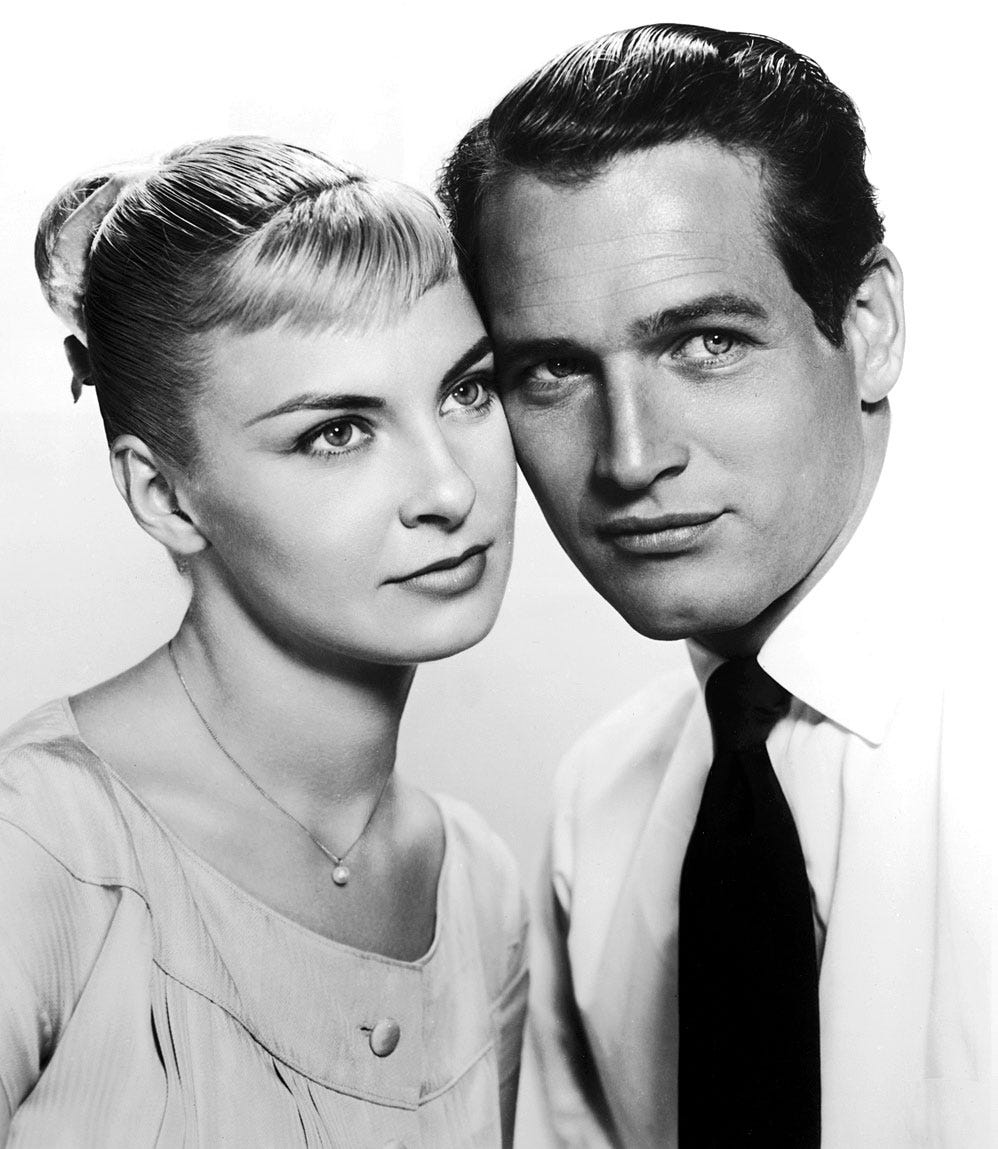
Under the Hood was conceived to uncover and promote the best practices in leadership, which my colleagues and I at The Leadership Collective contend are rooted in principles; perhaps most fundamentally humility, as the wise & wonderful Marilyn Gist illustrates in The Extraordinary Power of Leader Humility. Our research says that most such principles are forged early in life by friends, family members, etc. However, leadership formation is much more alchemy than science. Sometimes the principles lie dormant until activated by an “Aha Moment;” what the great Frances Hesselbein called a “Defining Moment.”
Such was the case with Newman. He was The Leading Man of his day in his chosen profession: acting. But he didn’t become a real leader until his Aha Moment tapped into the profound grief of losing his only son, and how it tied into the memories of his own joyless childhood.
Though 10,000+ pages of transcripts of the hundreds of hours of Newman’s intimate tape recordings comprise the source material for his 2022 biography, there are lots of gaps, so it’s impossible to pinpoint the exact date, time, and circumstances of his Aha Moment. However, the basic facts are clear, and the dots connect. After years of struggle, his beloved son died in 1978, and the anguished father blamed himself. Two years later, Newman was concocting his salad dressing in that old Connecticut barn. A little more than a year after that, he founded Newman’s Own—to help other struggling children, and their families.
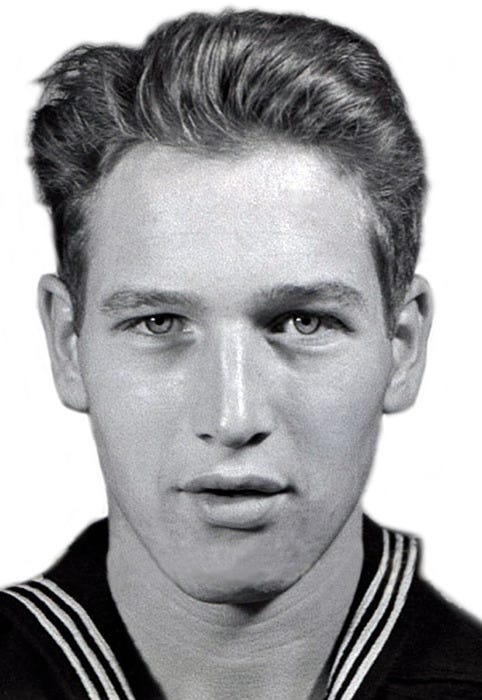
While Newman’s fame revolves around his acting, he said his real passion was driving. This explains why Wikipedia's “List of People from Shaker Heights, Ohio” reads “Paul Newman, actor and auto racer.” He's by far the most famous person on the list, yet many lesser-known people have much bigger write-ups. The modest description mirrors his humility, and supports the contention that his true claim to fame is as a humanitarian of the highest order, one of the greatest philanthropists in U.S. history. His obituary in The Guardian describes him as “the person who had distributed more money—in relation to his own wealth—than any other American during the 20th century.” Yet he bristled at such accolades. Compared to Albert Schweitzer and Dorothy Day, he felt like a total phony, which is why he was at first adamant about not putting his face on the label of his all-natural salad dressing. The superstar who hated attention, who’d moved 3,000 miles east to get away from the paparazzi, only caved after having been persuaded that by plastering his face on the bottle he’d be able to help a lot more kids. This man who gave so much summed up his philosophy as follows: “I don’t think there’s anything exceptional or noble in being philanthropic. It’s the other attitude that confuses me.”
What Good did Newman do?
He supported hundreds of charitable causes, from his alma mater, Kenyan College, to Catholic Relief in Kosovo. But his impact was especially profound in the following five ways:
1. Creating a network of free camps so seriously ill children could experience joy.
His Hole in the Wall Camp opened in Connecticut in 1988. Newman said he wanted to create a place where really sick (often terminal) kids could “raise a little hell.” His Serious Fun Network has grown to provide more than a million “life-changing camp experiences to children living with serious illnesses, and their families; always free of charge.”
2. Helping millions of poor people get access to clean drinking water.
While there are today many organizations in this space (e.g., the Bill & Melinda Gates Foundation), Newman primed the pump. Since 2006, the Safe Water Network he co-founded has helped bring clean water to impoverished rural communities that have no access to urban, centralized systems. Branching out from beta projects in Ghana and India, the Network is “committed to ensuring 50 million people have access to safe water by 2026.” Clean water translates into far less human suffering, disease and death, as well as healthier & more sustainable farming.
3. Role-modeling how A-List “influencers” should use their fame & platform.
The Good Work of Denzel Washington, Geena Davis & others has been informed and inspired by Newman’s efforts. Washington in particular goes about his philanthropy in the same sort of low-key, high-impact way.
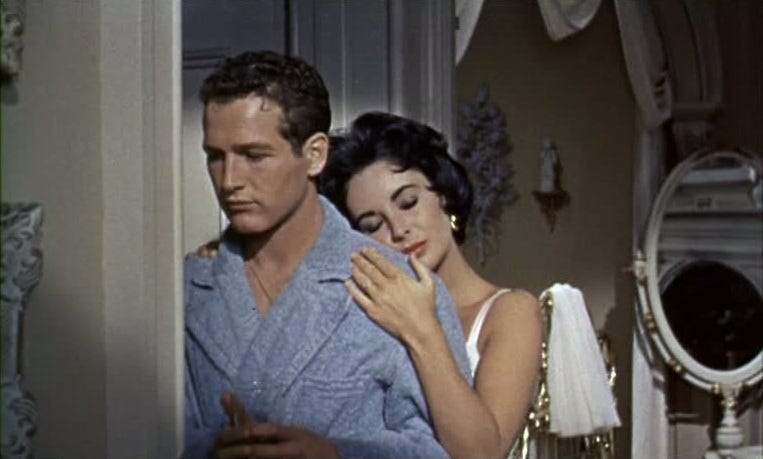
4. Pushing businesses and CEOs to be good corporate citizens.
In 1999, Newman co-founded the Committee Encouraging Corporate Philanthropy (CECP). Since renamed Chief Executives for Corporate Purpose, this movement of more than 200 of the world’s largest companies focuses on making sure time, talent & financial donations go where they’re most needed, and are deployed as efficiently as possible; for not just the Greater Good, but the Greatest Good.
5. Helping America eat healthier.
Whole Foods was founded the same year (1980) Newman began cooking his first batch of all-natural salad dressing. When it hit the shelves, it was the first that could label itself as having “fresh” ingredients. Newman's Own now sells 150+ products, from marinara sauce to fig cookies.
What were Newman’s leadership principles?
1. Follow your passion: that’s where you’ll find your real treasure.
Newman wasn't very religious (his father was Jewish, his mother Christian Scientist) but he totally agreed with the career advice contained in The Gospel According to Matthew. The actor was a foodie. “Others dream about sex,” he once said, “but I dream about food.” When he went to restaurants, fancy ones and burger joints, he'd bring along his own bag of ingredients, like an Irish tinker or a peanut-o-phobe, and whip up his own dressing. Wanting to share his passion is what launched him on a path to become one of the most dynamic philanthropists in U.S. history.
2. Be wary of convention.
Before he could do much Good, he had to run a gauntlet of nattering naysayers of negativism. At every turn, they told him “You can’t do it this way!” or “You simply must do it that way!” He soon discovered that 90% of the roadblocks were just the desiccated remains of silly, often self-serving convention. His motives were selfless. Instead of “needing” artificial preservatives, he enlisted scientists who discovered that his fresh ingredients actually created a natural preservative that was far better than the Frankenstein versions. Rather than spending $400,000 on a slick marketing campaign that the “experts” said was essential if he were to stand a chance of ever turning a profit, he spent $40 to gather some friends (including the then little-known Martha Stewart) to do blind taste-tests of his dressing versus Kraft and Wishbone, which dominated the shelves. Instead of buying expensive office furniture, when he closed his pool at summer’s end, he used the pool furniture. By ignoring traditional credit & order-processing “rules,” he generated better cash flow & created a better “Economic Order Quantity” formula than I learned in b-school. The result? Grocery stores that had been ordering one case a month of Kraft Italian salad dressing began ordering 24 cases of his Italian dressing; each week. First-year profits went through the roof. To date, his crazy Connecticut experiment has generated $600+ million in profits; every penny going to help his kids.
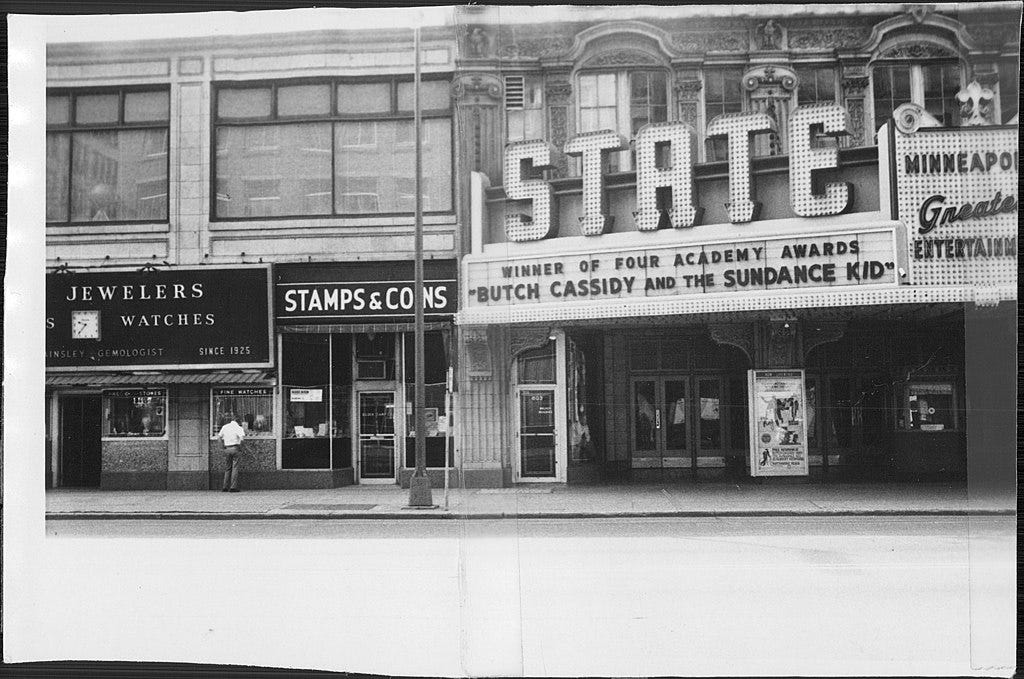
3. The only box office that matters is the heart.
When you set photos of Newman at the Academy Award beside ones at his camps for seriously ill kids—it says it all. There’s no doubt that if he’d fully “devoted himself to his ‘craft,’” as Hollywood likes to say, and taken his acting more “seriously,” instead of sneaking away from the sets of Absence of Malice and The Verdict to brainstorm with Hotch about where to source fresh mustard or garlic—he’d’ve collected a lot more Oscars, instead of “only” tying for the 4th most nominations. Likewise, if he’d have begun racing before his 47th birthday, and taken it more seriously, he would’ve had a lot more than just three 1st-place finishes. Americans were (and remain) by and large unaware of the extent of his philanthropy. Paradoxically, because he didn’t like to boast about it, many felt it was just PR-driven hokum. Nothing could’ve been further from the truth. The great Russian writer Anton Chekhov said “Medicine is my wife but writing is my mistress.” Acting was Newman’s wife. Though very passionate about racing, his real mistress was helping those who suffered, whether in rural India or a pediatric cancer ward in Indiana.
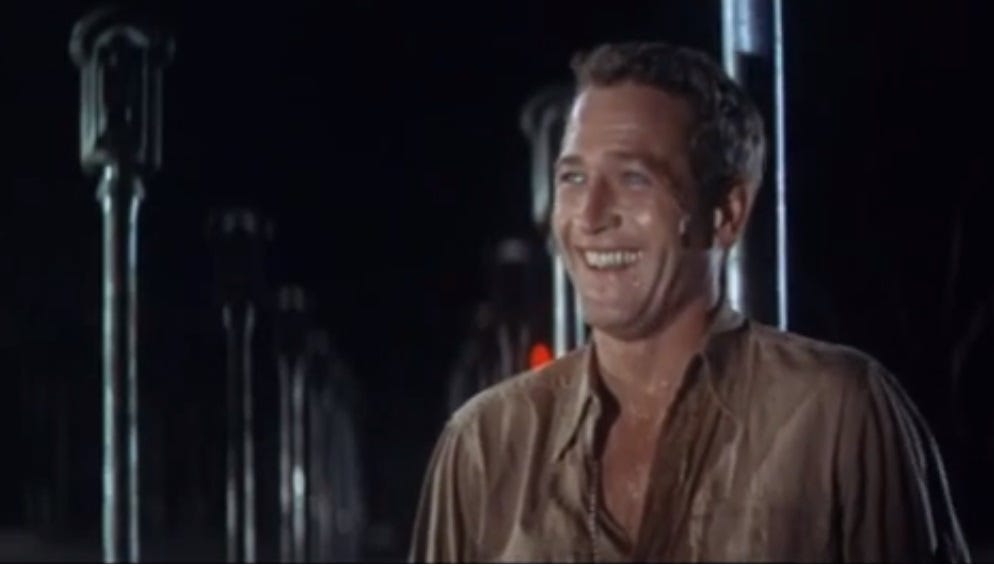
4. Working together is the only way to maximize performance.
Newman was a natural synergist and strategist, who often joined forces with diverse people and organizations in order to create & leverage powerful strategic alliances. For instance, in 1993, he and General H. Norman Schwarzkopf co-founded the 232-acre Camp Boggy Creek, located outside Orlando. In 30 years, Boggy Creek alone has brought joy to 100,000 kids and their families, free of charge.
5. Have fun!
This might have been his cardinal principle. At least that’s what I infer, based on the poignant photos of him hugging his Serious Fun Camp kids, his slapstick memoir (co-written by Hotch, who wrote the definitive Hemingway biography), and the hundreds of hours of reminiscences he tape-recorded between 1986 and 1991. For Newman, fun was the most essential all-natural ingredient in fulfillment. As he said regarding the birth of Newman’s Own: “It started out as a joke, and then it got out of control.” As his daughter Clea Newman Soderlund said: “He was so goofy with us. He was kind of like a big kid.”

Authenticity is big these days. My colleague Joel Gehman wrote a great piece about it. Paul Newman was many things, but above all else he was the genuine article. The performer’s compassion, generosity & humility are the hallmarks of non-performative leadership.
References and Additional Reading:
The Extraordinary Life of an Ordinary Man: A Memoir
Why Editing Paul Newman’s Memoir Called for a Cool Hand
Serious Fun Children’s Network
Chief Executives for Corporate Purpose



Great article!